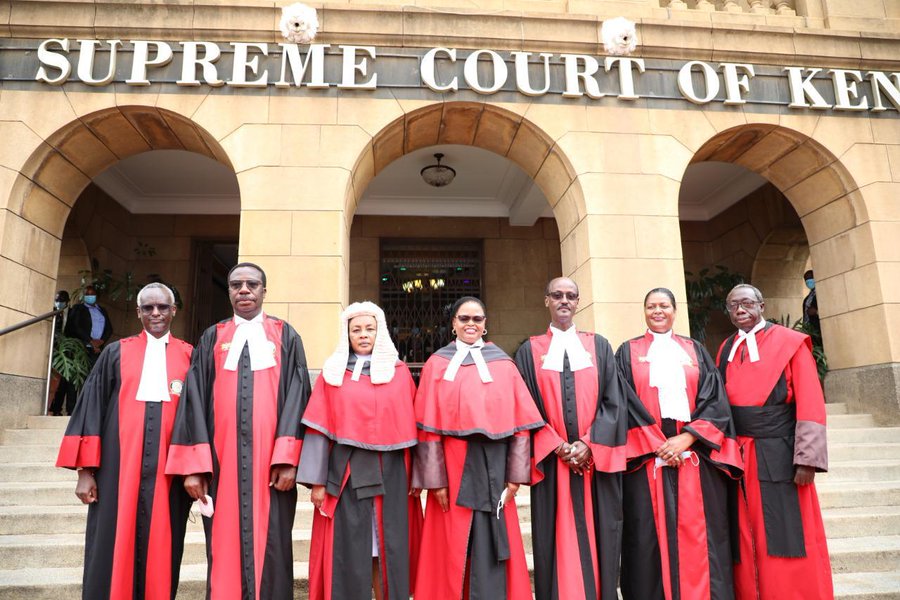More Kenyan marriages may soon end in premium tears.
This follows the latest supreme court ruling that was delivered by Supreme Court judges Philomena Mwilu, Smokin Wanjala, Njoki Ndungu, Isaac Lenaola and William Ouko.
According to the Apex Court judges, the doctrine of presumption of marriage is on its deathbed following changes to the matrimonial laws in Kenya.
So where does this leave Kenyans who have been in come we stay marriages for a very long time?
Well, the court said the presumption of marriage should only be used sparingly where there is cogent evidence to support it.
Therefore, no matter how long you live together with your spouse in a come we stay set up, it cannot be recognized as marriage.
“It is becoming increasingly common for two consenting adults to live together for long durations where these two adults have neither the desire, wish nor intended to be within the confines of matrimony,” they said.
“Where such a situation is evident and there is no intention whatsoever of contracting a marriage, the presumption of marriage must never be made where this intention does not exist. It must always be remembered that marriage is a voluntary union. As such, courts should shy away from imposing ‘marriage’ on unwilling persons,” they added.
They said they recognise that there exist relationships where couples cohabit with no intention whatsoever of contracting a marriage.
For instance, the court observed that a person may have been in a marriage before and the marriage is no more due to the death of a spouse or divorce and due to their prior experiences, such persons may choose to have an interdependent relationship outside of marriage.
For others, the judges said, it may just be their desire never to marry but have a partner without the confines of marriage.
The judges urged the National Assembly, the Senate and the Attorney-General to formulate and enact Statute law that deals with cohabitees in long-term relationships, their rights, and obligations.
This ruling stems from a dispute between two long cohabitees who were fighting for an equal share of a property that they jointly acquired.
The case was first instituted by the man against the woman whom he claimed to be his wife.
His arguments were that they began cohabiting as husband and wife sometime in 1986 and that from joint savings, they purchased a property that later became the bone of contention after he was evicted from it.


Leave a Comment